Iran Special Envoy For Afghanistan Speaks Of Relations With Taliban
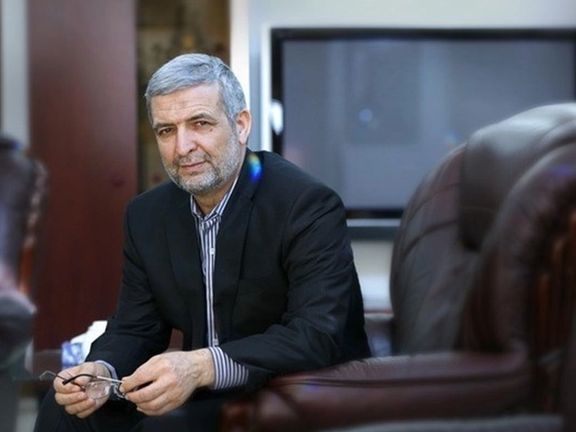
Iran’s President Ebrahim Raisi’s special representative for Afghanistan and a lawmaker have said that agreement with the Taliban is possible on certain issues.

Iran’s President Ebrahim Raisi’s special representative for Afghanistan and a lawmaker have said that agreement with the Taliban is possible on certain issues.
Hassan Kazemi-Ghomi who was appointed as Raisi’s point-man on Afghanistan told Iran’s state broadcaster that it would be possible for Tehran to reach agreement with the Taliban over water sharing issues and prevention of narcotics smuggling.
He added that Afghanistan is currently affected by security crisis and Iran should “consider priorities and prevailing condition.” Kazemi-Ghomi repeated statements made earlier by Iranian officials that there is a “foreign conspiracy” to plunge regional countries in conflict and Iran should try to “emerge from this situation”.
Meanwhile, Hassan Hemmati, a member of parliament’s national security committee has said that if Taliban can provide security and protect the rights of all religious groups “It would be possible to have normal relations with them” guided by Iran;s national interests.
Since the Taliban takeover, Tehran has been cautiously suggesting that the Islamic militant group has changed, and they are the de-facto rulers of Afghanistan. It has also avoided supporting anti-Taliban rebels. But Iran has also insisted that the Taliban respect the rights of religious and ethnic minorities, particularly Shiites.
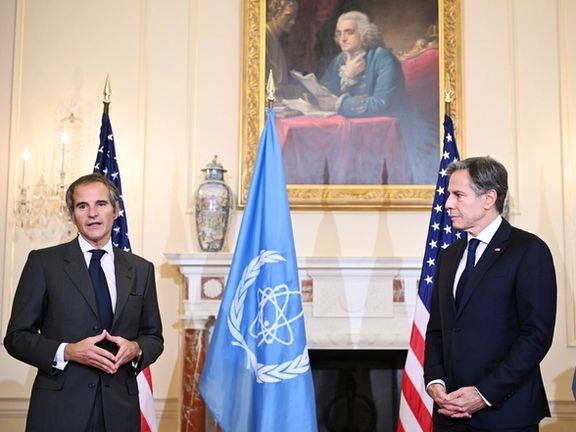
IRGC-affiliated media in Iran has suggested that the US is using IAEA chief Rafael Grossi to exert pressure on Tehran to return to nuclear talks in Vienna.
Javan daily newspaper published a commentary by Hadi Mohammadi on Thursday that the United States is using the International Atomic Energy Agency (IAEA) to monitor Iran's nuclear activities and to inspect its nuclear installations on its behalf, based on the authority vested in the UN nuclear watchdog by the Non-Proliferation Protocol (NPT) and some of the clauses in the Iran nuclear deal, JCPOA.
The United States and the West benefit from the intelligence gathered by the IAEA for them free of charge, Mohammadi claimed in the commentary. Meanwhile, he opined that this intelligence gathering mechanism was badly harmed with the reduction in Iran's commitments under the JCPOA. However, the IAEA Chief is trying to get back the initial concessions given to the West by the JCPOA, Javan maintained.
Last December, Iran passed a law limiting IAEA’s monitoring access to its nuclear sites, demanding that the US should lift its sanctions. A limited and temporary deal is in place now, but Grossi has complained that Iran is curtailing his agency’s ability to do its job.
The commentary further stressed that in fact, it is the United States that is under ‘maximum pressure’ by Iran to return to the negotiations as it has failed to force Iran to make new concessions.
Javan insisted that there is no room for the inclusion of talks about Iran's missile programs in the new negotiations, and the West can only hope to harness Iran's nuclear program, but it needs to give concessions to make that possible.
It described Grossi's call for having a political discussion with Iran's Foreign Minister Hossein Amir-Abdollahian as naïve and warned the IAEA chief that Iran is not under any commitment to go beyond the discussion of technical matters within the frameworks of NPT. Mohammadi added that Grossi should know that the members of Tehran's new negotiating team are different from their predecessors.
The commentary said that Grossi can only talk with Iran's nuclear chief Mohammad Eslami rather than hoping to meet with the foreign minister. "He should distance himself from the idea of holding talks in Iran by proxy for the United States," the commentary said, adding that a chat with Eslami is the most he can get if he visits Tehran. The US, said the commentary, should forget about the division of labor with Grossi and instead should make concessions.
Meanwhile, in another article entitled "Winding in Washington," another IRGC media outlet likened Grossi to a clock that Washington has winded to make its moves in Tehran. This article also repeated the argument of the commentary about Grossi being used by the US as a tool to exert pressure on Tehran before starting the talks to revive the JCPOA.
The article added that Washington is also planning to use Grossi to exert pressure on other countries, including China, via the International Atomic Energy Agency. This was a reference to US officials' statements about asking China to stop buying oil from Iran.
Grossi asked to meet with Amirabdollahian following his meetings with US officials including Secretary of State Antony Blinken this week. During the meeting, Blinken said that Iran should remain committed to the verification of its nuclear activities, stop provocative actions and return to diplomacy.
Subsequently, Grossi told the Financial Times Monday that "a temporary arrangement for the International Atomic Energy Agency (IAEA) to monitor Iran’s nuclear sites was no longer intact." Grossi told the newspaper he wanted "an urgent meeting – 'contact at the political level' − with Iran’s foreign minister Hossein Amirabdollahian to discuss surveillance arrangements."
“I haven’t been able to talk to [Iran’s new] foreign minister,” Grossi told the FT. “I need to have this contact at the political level. This is indispensable. Without it, we cannot understand each other.”
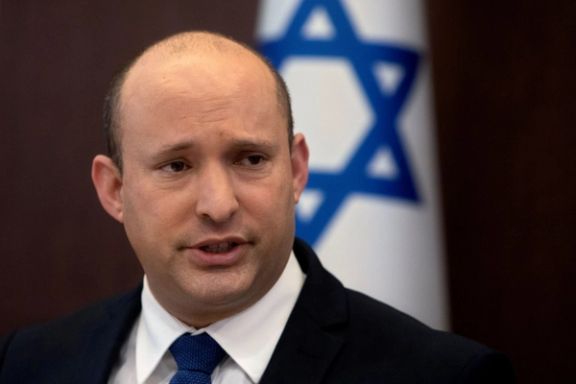
Israeli Prime Minister Naftali Bennett flew to Russia on Friday for his first meeting as premier with Russian President Vladimir Putin, amid tensions with Iran.
Bennett stressed the importance of the relationship between Israel and Russia, highlighting the "million" Russian speakers who live in the country.
Bennett’s predecessor, Benjamin Netanyahu regularly had meetings with Putin to regulate their interactions regarding Syria.
Bennett also confirmed Israel's international status was "significantly strengthening" and was progressing well.
Bennett will meet Putin to discuss political, security and economic issues, including the Iran nuclear program.
The two countries operate a military hotline to coordinate air force operations over Syria to avoid clashes.
Israel often attacks Iranian-linked targets in Syria, while Russia has provided protection for the Bashar al-Assad’s government in Syria.
Russia is one of the international parties that negotiated a 2015 nuclear deal with Iran.
The deal fell apart after then-President Donald Trump withdrew in 2018.
But the new US administration is now trying to revive the deal that would lift sanctions and offer a lifeline to the Islamic Republic — a step that Israel, Saudi Arabia and others in the region oppose.

Azerbaijan on Thursday confirmed the release of two Iranian truck drivers it arrested last month on a transit road it captured from Armenia last year.
Nour News, a website close to Supreme National Security Council Secretary Ali Shamkhani, reported Thursday morning that the two truck drivers had been handed over to the Iranian embassy in Baku and were preparing to leave the country.
Reflecting eased tensions between the two countries, Azerbaijan said its decision to free the drivers was "guided by principles of humanitarianism, mutual respect, and good neighborliness."
The move followed a phone-call between Iranian foreign minister Hossein Amir-Abdollahian and his Azeri counterpart Jeyhun Bayramov October 13 during which the two sides agreed to put a stop to "harmful rhetoric" and resolve problems through dialogue.
Iran’s Roads and Transportation Agency ordered transport companies Wednesday to "comply with the laws" and "take the sensitivities of [Azerbaijan] into consideration” given its acquisition of territory from Armenia during the 44-day Nagorno-Karabakh conflict of 2020. This, the agency said, would require Iranian drivers to avoid the Armenian-populated Karabakh enclave of Azerbaijan when travelling through Armenia.
Nour News on Wednesday said "lack of due diligence of some private transportation companies" had given "certain anti-Iranian factions” in Azerbaijan “an excuse" against Iran and had led to Baku making "verbal challenges…[that] are not in either country's interests."
Nour News welcomed the communique from the Roads and Transportation Agency, which it said would “block the path to any squabbles by those opposed to [good] relations between the two countries and certain third parties while illustrating Iran's official and constant stance of respect for the territorial integrity of the Republic of Azerbaijan.”
Baku restricted Iranian access to Armenia along roads it captured from Armenian forces last year, but Iran-Azerbaijan relations have been remained strained since the war when Tehran was alarmed by reports of Turkey deploying militant Sunni fighters recruited in Syria to join Azerbaijani forces. Tehran has been long been concerned over Azerbaijan’s relationship with Israel, an oil customer, and reports that Baku has allowed Israeli access to its airspace.
After the arrest of the two Iranian truck drivers, officials and media in both countries ramped up critical rhetoric. Iran held extensive military drills near the border area after military drills between Turkey, Azerbaijan and Pakistan.
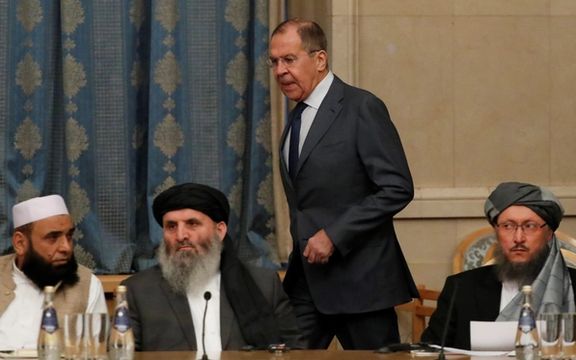
A foreign ministry official in Iran has criticized Russia’s “weak management” of the Afghan conference in Moscow on Wednesday, saying no consensus was reached.
Rasul Mousavi, general director of the ministry’s West Asia desk also complained that what was issued as a joint statement on the Russian foreign ministry’s website was not reflecting the collective view of the participants.
The conference also included representatives from the Taliban, Pakistan, China, India and Central Asian countries. After the meeting ended in Moscow, Mousavi tweeted that despite no results after “serious discussion over regional cooperation for peace, stability and security in Afghanistan” the meeting ended.
In a rare rebuke to Russia, the Iranian diplomat said that what was issued after the conference was not a joint statement.
Following his remarks, the Russian embassy in Tehran published the statement that says participating countries agree to cooperate with the Taliban to promote regional stability and demanded that the new rulers in Afghanistan respect the rights of women, children and minority ethnic and religious groups.
Mousavi responded by saying that the statement was not read at the meeting and agreed upon.
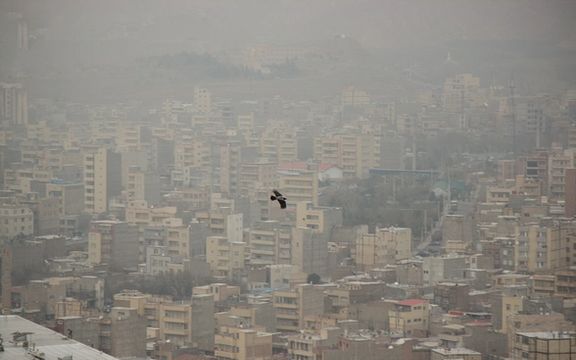
Power plants in Iran have have switched from natural gas to heavy fuel oils before the peak winter months, in what could lead to heavy pollution in cities.
The head of electricity generation in Iran’s East Azerbaijan province, Mohsen Mousavi told a meeting in the provincial capital Tabriz that the energy ministry ordered them to begin using mazut instead of liquid gas months before Iranian power plants usually do the switch in high-demand winter months.
Iran has been experiencing natural gas shortages to fuel its power plants in cold and hot months. Last winter and early in summer, power plants switched the mazut, which is a dirty diesel fuel. Heavy smog and pollution covered major cities leading to public outcry.
The early use of mazut will inevitably lead to dangerous levels of pollution in major cities, as the cold season is just beginning in Iran and could last until late February. Mousavi said the power plant in Tabriz belongs to a private owner and the government cannot even install equipment to reduce pollution. The plant produces just 300 megawatts of power and a local official said it is not worth endangering the lives of the city’s residents.